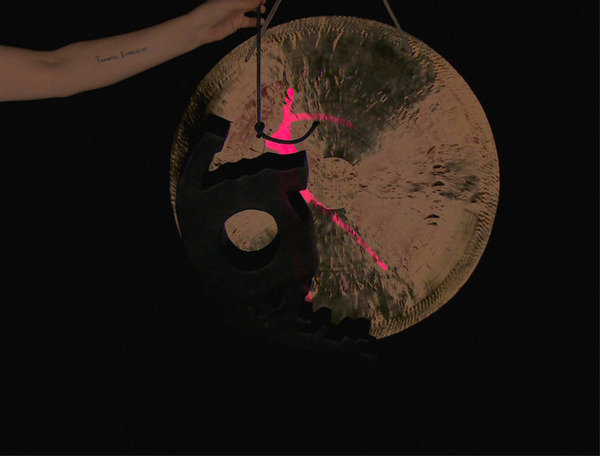A kind of graphic unconscious
dal 3/7/2015 al 14/8/2015
Segnalato da
3/7/2015
A kind of graphic unconscious
Susan Hobbs Gallery, Toronto
This exhibition considers how a relationship between the material and immaterial becomes permissible through thecrossing of singular paths.The paradox of the effect is how it uniquely exists in physical space and time, yet also in the space of representation and the image.

Taking the moiré effect as cue through the convergent practices of Liz Deschenes,
Eileen Quinlan, Erin Shirreff, and Erika Vogt — this exhibition considers how a
relationship between the material and immaterial becomes permissible through thecrossing of singular paths. As an effect, moiré is the perception of a distinct third
pattern which occurs when two similar patterns are superimposed slightly askew. By
offering access to this latent pattern the immateriality of two dimensions shift to
reveal a previously indiscernible three dimensional space. Due to their potential
opposition to each other, these patterns can be employed to either obscure content
or increase its evidence; thus moiré can be understood as “a kind of graphic
unconscious: a basic condition of blur, out of which temporary effects of sharpness
are occasionally won.” 1 The paradox of the effect is how it uniquely exists in physical
space and time, yet also in the space of representation and the image.
Liz Deschenes’ work often focuses on the ethereal qualities of light, manifesting as
imprints on photosensitive paper or as reflections by way of densely saturated
surfaces. Her constructions, sometimes created without the use of a camera, often
have a strong phenomenological component that is perhaps most evident in her
Moiré series. Working within a similar context, the imagery present in Eileen
Quinlan’s photographs is disrupted through chemical processes and filmic
modifications. These techniques, often rooted in chance, create unforeseen
compositions and semi-abstracted forms, subsequently expanding the possibility of
what might come to appear within the frame.
In the works of Erin Shirreff perceptual shifts are made apparent through the
juxtaposition of photographic representations and sculptural forms. Conflating
various perspectives, the result is an ambiguous sensation of space and a
simultaneous flattening of the object. Also considering the relationship between two
and three dimensions, the artistic practice of Erika Vogt centers on a subtle yet
complex dialogue between physically present objects and simulated spaces of the
screen. In blurring these boundaries, expected functions and narratives are
interrupted allowing for a multitude of associations, rather than singular
connotations.
Image: Erika Vogt, “Darker Imposter” (2013), film still
Press Contact: (416) 504.3699, info@susanhobbs.com
Opening: Saturday, 4 July from 2 to 4 p.m
Susan Hobbs Gallery
137 Tecumseth Street, Toronto
Wed - Sat 11am to 5pm



